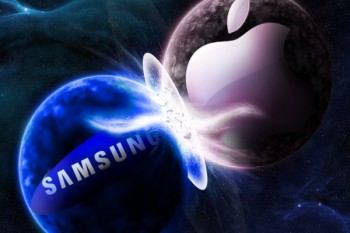
Google, Facebook and more are on Samsung’s side in war against Apple
Believe it or not, Samsung and Apple are still duking it out in the courtrooms despite the two sides calming down over the years. Apple still wants its cut, though, and they probably aren’t going to stop until they’ve won.
And while Apple does have the advantage in all these patent lawsuits, Samsung has everyone rooting for them. A collective of Silicon Valley tech companies — including Google, Facebook, eBay, Dell, HP — have all cosigned a “friend of the court” document informing the courts of their thoughts on some of the dangerous precedents they could be ready to set in the world of patents.
It’s not the fact that Apple is able to win lawsuits based on some of the frivolous patents they own, such as the shapes of icons, that has everyone worried. A patent is a patent, and we should be blaming the current broken system for the pitfalls it’s created instead of Apple for exploiting it.
Instead, their fear is that a ruling which would force Samsung to fork over 100% of the profits from infringing devices if even just one patent is violated can lead to an “absurd” future for tech patents. Here’s an excerpt from the document:
Under the panel’s reasoning, the manufacturer of a smart television containing a component that infringed any single design patent could be required to pay in damages its total profit on the entire television, no matter how insignificant the design of the infringing feature was to the manufacturer’s profit or to consumer demand.
Software products and online platforms face similar dangers. A design patent may cover the appearance of a single feature of a graphical user interface, such as the shape of an icon. That feature—a result of a few lines out of millions of code—may appear only during a particular use of the product, on one screen display among hundreds.
But the panel’s decision could allow the owner of the design patent to receive all profits generated by the product or platform, even if the infringing element was largely insignificant to the user and it was the thousands of other features, implemented across the remainder of the software, that drove the demand generating those profits.
They aren’t wrong, either. Why should a company win 100% of your profits if all you “stole” was an icon shape, or some other insignificant element of device or user interface design? Where does one even begin to quantify the value of that sort of patent up against the hundreds of other components and innovations stuffed into these devices?
100% is the easy way out for the courts who have to mediate these talks and rule on these cases, but the other tech companies have no sympathy for the plight of these judges and they’ll do everything they can to make sure this precedent is never set. Let’s hope they’re successful in that quest.
[via Inside Sources]